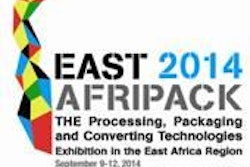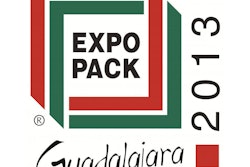
What would a public service announcement (PSA) say about packaging? That question assumes that a PSA is warranted in the first place. Most of us can point to examples of PSAs. After all, many end with, “This has been a public service announcement.” But not all of us are able to provide a definition of a PSA or articulate its objective. So let’s do it here: A PSA is a communication about subjects of public interest, and its objective is to raise awareness and/or to affect attitudes and behaviors. By that definition, packaging warrants a PSA. Not only is it a subject of public interest, but because its benefits to all are so often underappreciated and misunderstood, the public would benefit greatly from increased awareness that might change attitudes and behaviors.
There are a host of particulars that our imagined PSA might hit upon, but the central message would have to be that packaging enriches society. I’d go so far as to say that it’s indispensible to our quality of life. Inside the packaging community, we all know this to be true, so the very notion of saying it is like preaching to the choir. But the public at large is not so well informed, and when we do make an effort to be packaging advocates, we too often explain, and dither, and justify from an apologetic and defensive stance.
According to one famous PSA, “A mind is a terrible thing to waste.” Well, the truth is a terrible thing to waste, also. The following are only some of the many truths a PSA could say about packaging.
Packaging reduces world hunger. Even if the discussion is scaled down to a particular continent or a particular country, the fact still holds. At the front end, post-harvest losses are reduced when the packaging of produce is performed in the fields. Alternatively, many types of produce are packaged at facilities, with some facilities performing various levels of processing. An additional benefit of such centralized processing is that the agricultural wastes are collected en masse, whether for disposal, animal feed, or recycling. Much of what can be said of packaging’s benefits to agriculture can be said of the fishery and meat industries. In all, packaging extends the food supply, protects food’s nutritional value, and makes possible an ever-increasing variety of food products.
Packaging promotes world-health. Medicines in general, including those that fight scourges still plaguing parts of the world, rely on packaging for safe dosage and administration. On a related note, surgical procedures are facilitated by surgical kits and other surgical supplies that have been packaged in materials allowing the contents to be sterilized by steam, ethylene oxide, or radiation. Another medical beneficiary is the field of organ and tissue transplants, where rigid temperature control is essential; packaging is a core component of this cold-chain management.
Packaging is central to humanitarian relief efforts. Victims of natural disasters (i.e. floods, earthquakes, super-storms, droughts, and famines) as well as victims of the manmade variety (particularly war) often owe their very survival to humanitarian relief. Packaging makes a lot of that relief possible, from the dispensing of bottled water to airdrops of food and medicines.
Packaging spurs economic development. The mass-production, mass-distribution, and mass-consumption that are the underpinnings of the economies of developed nations would not be possible without packaging. That’s because the vast majority of what flows through supply-chains—from raw materials to finished products—has to be packaged. The amount of packaging typically reflects the amount of value-added content of an item. That correlation also drives the demand for packaging technologies in lesser-developed nations as they continue evolving from being sources of commodities to sources of value-added products. Regardless of a nation’s level of development, every nation is a member of the global economy; therefore, every nation has to source, produce, and market anywhere in the world that makes economic sense. There’s no way to move items intermodally around the world without adequate packaging.
Packaging makes possible self-service retailing. Groceries, drug stores, home-improvement stores, and similar types of retailing are built on the concept of consumers being able to walk in, make selections, pay for them, and leave—for the most part without having to rely on salespeople. What performs the sales function at the critical point of purchase, the so-called moment-of-truth, are the packages that seduce from shelves, cases, and displays. Self-service retailing allows consumers to make individual choices reflecting trade-offs among price, quality, and convenience. The sweeping variety from which those choices can be made is a signature component of modernity, and nations around the world with lesser amounts of self-service retailing want to see more.
Packaging is earth-friendly. That has been the case long before the era of sustainability swept in. Since packaging is a direct cost, there never has been an incentive for businesses to intentionally overpackage. Additionally, the major packaging materials—paper, glass, aluminum, and plastics—are recyclable. Too often, the reckless allegation is that packaging, by its very nature, is an environmental problem. In truth, the problem resides more in infrastructure (or lack thereof) and public attitudes and behaviors (lending lip-service but unwilling to sacrifice time and effort for the cause). What needs to be more widely acknowledged is that packaging, by protecting products, conserves the resources and energies embodied in those products. Packaging is a champion of sustainability.
As for the cost of a Packaging PSA, keep in mind that electronic media outlets are obliged by their federally-granted licenses to provide free airtime to PSAs (although those outlets have the authority to decide which PSAs to air). The major cost to the sponsor(s) of a PSA is the production cost. The preceding arguments (and more could have been given) supporting why packaging deserves PSAs emphasized the benefits to the public and the world; however, many well-heeled stakeholders also benefit, and, together, can easily afford to bankroll a PSA campaign. They include suppliers, end users, trade organizations, and retailers. The message needs to be that packaging is utterly beneficial, and that our existence would be all the poorer without it.
So what should a Packaging PSA say? Why not paraphrase one particularly well-known PSA: This is your world; this is your world without packaging. Any questions?
Sterling Anthony is a consultant, specializing in the strategic use of marketing, logistics, and packaging. His contact information is: 100 Renaissance Center- P.O. Box 43176; Detroit, MI 48243; 313-531-1875 office; 313-531-1972 fax; [email protected]; www.pkgconsultant.com
























